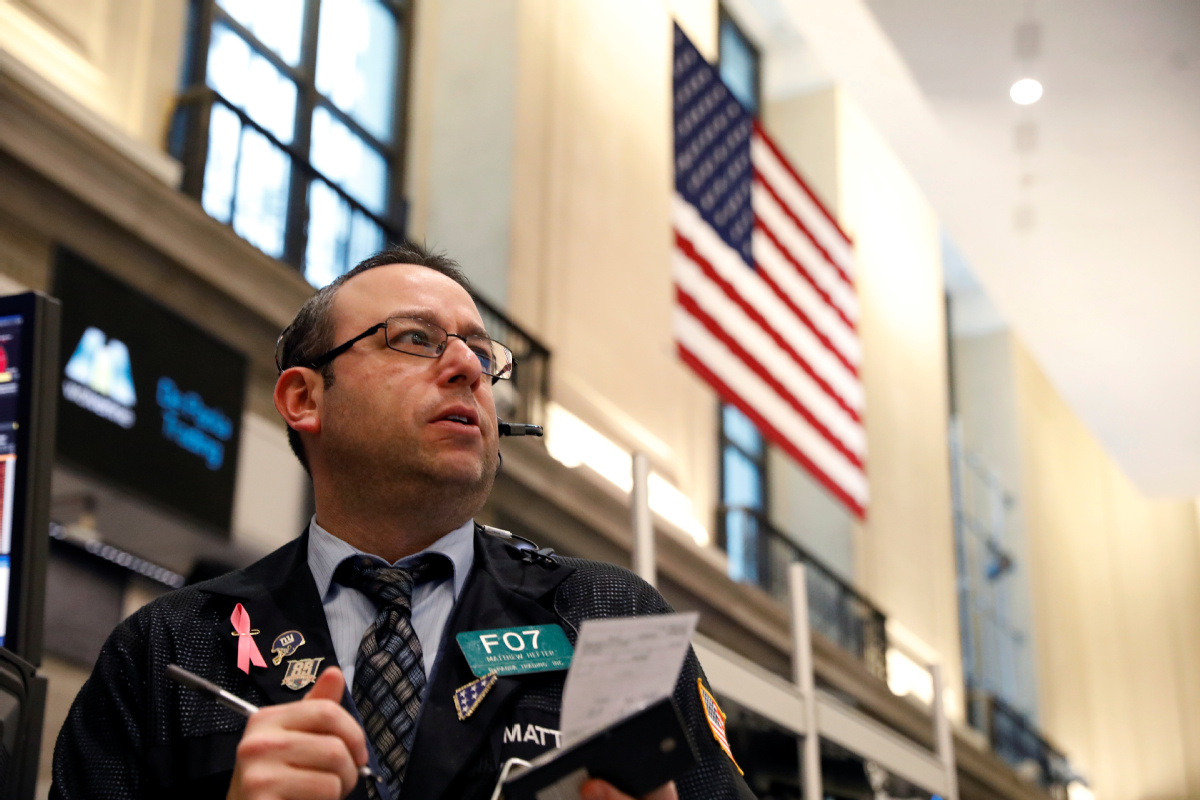Global stock markets slump amid concerns
By Zhou Lanxu in Beijing and Scott Reeves in New York | China Daily | Updated: 2020-03-13 06:55

The recent panicky sell-offs on Wall Street have roiled global financial markets, highlighting the risk that a new round of economic recession could be near, economists said on Thursday.
They called on governments to take resolute measures in bringing the novel coronavirus global outbreak under control as soon as possible, as well as to coordinate macro-adjustments to minimize the economic impact of the pandemic.
China's key Shanghai Composite Index lost 1.52 percent to close at 2,923.49 points on Thursday, while the smaller Shenzhen index shed 2.31 percent to close at 10,941.01 points.
Other Asia-Pacific markets also felt the pressure. Japan's Nikkei 225 fell 4.41 percent, while Australia's S&P/ASX 200 slumped 7.36 percent.
This came after stocks in the United States fell into bear market territory since Wednesday.
As of 10:20 am Thursday in New York, the Dow Jones Industrial Average had plunged nearly 8 percent, dragging down the index nearly 15 percent this month.
The S&P 500 dropped by 7 percent in the opening minutes of Thursday's trading and triggered an automatic 15-minute halt to US stock trading, the second time this week.
London's FTSE 100 and France's CAC 40 were both trading more than 9 percent lower than the close of the previous session as of press time.
Dong Dengxin, director of the Finance and Securities Institute at Wuhan University of Science and Technology, said the switch from bull to bear market is "basically irreversible", as both technical and fundamental factors have pointed to the end of the 11-year-long US stock bull run.
"The manufacturing sector is facing the risk of contraction, while the plunge in oil prices will hurt the economy as an oil exporter," Dong said.
Xue Yi, a professor of finance at the University of International Business and Economics in Beijing, said if US stocks are caught in a protracted and deep decline, the risk of recession in the US economy will become real, as the slashed value of stocks will hurt consumer spending and later corporate investment.
The risks faced by the US economy could lead to disruption to the global supply chain, weaker demand, financial market fluctuations to other economies, and resonate with risks faced by those economies domestically, Xue said.
A Goldman Sachs report said that as the epidemic grows, higher-income economies may slow sharply in the coming months, with stagnation in the US and contraction in the euro area in the second quarter.
"The ultimate loss for the global economy is yet to be known, but the key move to shield the world economy with any crisis will be bringing the global virus outbreak under control as soon as possible," Xue said.
Positive developments in combating the virus will help stabilize US stocks in the near term, said Jameel Ahmad, global head of currency strategy and market research at global foreign exchange broker FXTM.
"Investors want to see a hero, and this hero isn't the central bank in the US cutting interest rates. The hero they want to see is the good news that this virus has now been controlled," Ahmad said.
Li Qilin, chief economist at Guangdong province-based Yuekai Securities, said it is important for governments in major economies to cooperate in combating the epidemic and its economic impact.
Li outlined the risk that as the epidemic hits global growth, different economies may resort to competitive monetary easing and exchange rate depreciation, and scramble for more positions in the global industrial chain, leading to uncoordinated and ineffective policy reactions.
"Where the global economy is heading for, to some extent, will rely on how the Chinese economy performs in the coming months," said Dong at Wuhan University of Science and Technology.
As the world's second-largest economy has an unsynchronized economic cycle with developed economies and is gradually recovering from the epidemic, it may help the global economy gain footing, Dong said.
























